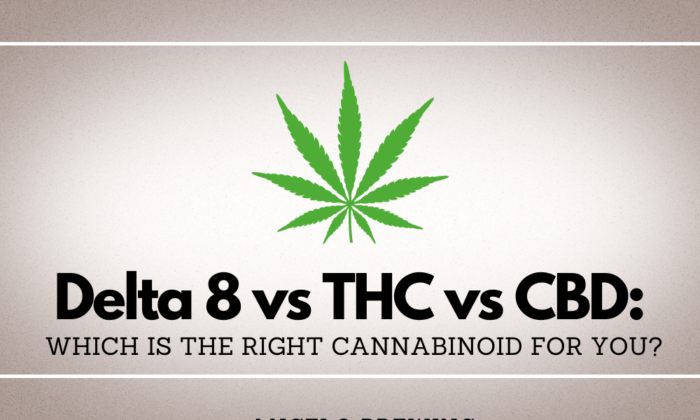The legalization of marijuana has consistently been a hot topic in recent years. And while we’ve come a long, long way from the days when weed was universally regarded as criminal and taboo, the fact remains that recreational cannabis still isn’t legal in most states.

Fortunately, hemp and hemp-derived products were taken off the controlled substances list when the 2018 Farm Bill was passed. This allowed Americans to experience some of the benefits of cannabis by way of consuming hemp CBD. The idea of enjoying the health benefits of this cannabinoid without the high brought by weed was so attractive that the CBD industry ballooned to over 1 billion dollars in sales in 2020.
But it looks like there’s a new kid on the block, and it’s making even the most zealous CBD fans consider jumping ship. Frequently called Delta 8 THC, this hemp derivative is well on its way to becoming the new darling of the crowd.
What is Delta 8 THC?
Delta 8, which is short for delta-8-tetrahydrocannabinol, is a THC substitute that offers some of the same properties as THC. Like the latter, it helps combat anxiety, pain, and nausea and stimulates appetite.
This similarity is explained by the fact that Delta 8 binds to the same cannabinoid receptors in the human body as THC does. Both cannabinoids have psychoactive effects but to varying degrees.
Delta 8 vs. THC
If Delta 8 and the usual THC (which is also called Delta 9 THC, by the way) offer similar benefits, how do you know which one to use?
Well, for starters. Delta 9 THC is federally illegal in the United States, while Delta 8 enjoys the same legality as CBD. If you want to enjoy these benefits (and you want to get high) without having to worry about the law, Delta 8 is the way to go.
But what if, let’s say, you can freely access both?
In that case, you have to consider how much of a high you can tolerate. THC is a lot more potent than Delta 8. You can even think of Delta 8 as the lite version of THC. The former leads to a milder high and comes with fewer side effects. If the intensity of THC doesn’t sit right with you, or you tend to experience anxiety attacks and paranoia because of it, Delta 8 is a fantastic alternative.
Delta 8 vs. CBD
According to D8 THC Shop, an Oregon-based store that sells locally farmed and sourced Delta 8, CBD, and CBG products, CBD is an entirely different story compared to Delta 8 and Delta 9 THC.
From a chemical perspective, Delta 8 binds to CB1 and CB2 receptors, whereas CBD only binds to CB1. This allows CBD to offer the relieving properties of marijuana without the high associated with it.
While CBD offers numerous health benefits, many people don’t feel satisfied with it because it’s completely non-psychoactive. This is the reason why many CBD users are jumping ship. Delta 8 has the same neuroprotective, analgesic, and anxiolytic benefits as CBD, but it also comes with a mild high that gives the brain more immediate, satisfying feedback.
If there’s one thing CBD has the upper hand on, it’s in its low probability of showing up on drug tests. Even though Delta 8 is milder than Delta 9 THC, they produce the same metabolites. This means Delta 8 can sometimes lead to a false-positive result.
Which is the right cannabinoid for you?
If you enjoy the intense high brought by THC and aren’t worried about its impact on your mental clarity, it’s the best choice for you (assuming you live in a country where it’s legal). But if all you want to do is enjoy the anti-anxiety, sleep-enhancing, and pain-relieving properties of cannabis, but you don’t want any mind-altering effects, CBD is the way to go.
Want a little bit of both? You can think of Delta 8 as a good middle ground between Delta 9 THC and CBD in a nutshell. It’s the perfect option if you find CBD unsatisfying, but you don’t like the intense high brought by THC. Best of all, it’s legal in the US!


